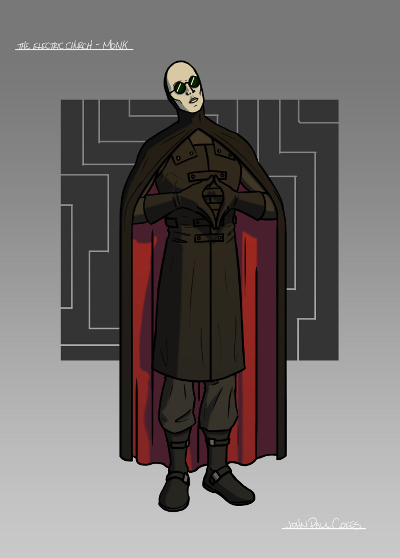“You ask me if I have a God complex. Let me tell you something: I am God.” – Alec Baldwin as Dr. Jed Hill, “Malice“.
I was chatting with another author about a work-in-progress the other night. This is unusual in that I a) dislike people and b) dislike other authors almost on sight, as a rule. Well, dislike is the wrong word; there are actually quite a number of other writers I like just fine, and a few I even enjoy. Don’t tell them, or they’ll start expecting me to pick up bar tabs.
Anyways, this writer – we’ll call him Mr. Bean – was asking me my opinion of the ending of his work-in-progress, which amounted to what I like to call a Titanic Ending: You’re tired of writing the damn story, so you just steer for an iceberg and let it sink. I told him so, and after an awkward pause he confessed he had another idea for the ending. He told it to me, and it was so much better I physically assaulted him. After we convinced the waitresses at Stinky Sullivan’s in Hoboken to release us and promised to pay for the broken table, I bought Mr. Bean another whiskey and asked why he was not going with the clearly superior ending, which had actually been his original intention.
He said it was a simple matter of mechanics: Earlier events in the story had precluded the ending, made it impossible.
So, I hit him again. Don’t writers realize they are gods in their own universes?
You can do anything in your story. Halfway through a historical novel set in Edwardian England you can have aliens show up and start melting brains. If you’re writing a locked room mystery, you can go back to chapter 1 and insert the innocuous clue that makes everything fall into place. Jebus, within the confines of your story you can make anything work. It’s like the Reverse Chekov’s Gun Principle: If suddenly realize you need a gun to go off by the end of your story, go back to chapter 1 and put in a damn gun.
It is surprising how many writers don’t seem to realize this. You are writing fiction. You are, in scientific terms, making shit up. If a detail you invented earlier doesn’t work, go back and change it.
Unless you are, as I notably am, lazy. My biggest dread when routing a new novel is the terrible Logic Revision, wherein someone notes either a major flaw in logic (e.g., “How come the hero didn’t just use his magic flying shoes to escape the prison?”) or introduces a brilliant suggestion that makes my storytelling seem like the work of drunken moron. Er, more like the work of a drunken moron. Shut up. These sorts of suggestions require major surgery, months and months of chaotic, confusing revision that sees me trying to salvage as much of my previous work as possible, papering over problems with paragraphs of new text, and sleepless nights until I finally realize I’ve made a mess of it, burn the manuscript in a drunken revel, and then burst into tears when I remember that this is 2011 and burning the manuscript doesn’t do anything except set off the fire alarm and summon my wife The Duchess, who then hides all my whiskey bottles.
However, when I wake up hungover and bleary the next day, I always realize that I am, after all, god in this little written world. I go back and start over. And I can always make it work, because I can change the fundamental truths about my world. I can make things appear and disappear. I can change the history of a character. I can introduce new people who never existed before and delete others from the world so thoroughly they are burned out of the pattern, so to speak. The dreaded Logic Revision hurts, but it isn’t anything that can’t be accomplished with some concentration and hard work. Any writer who retreats from a good Logic Revision deserves to have their novel sit in a metaphorical drawer, never to be read.
The ancillary rule to this is simple: The less you want to do the revision, the better the revision probably is. When I get feedback and my reaction to suggested revisions is a shrug and a vague determination to, sure, why not, do it someday, then that revision is probably just polishing the silver. If my reaction is to drop to my knees and scream out a good old fashioned do not want to the universe, chances are the suggested change is going to make me famous when I win some sort of book award. If I wrote the sort of books that won book awards, instead of just jealous emails from other writers at 3AM. You’re all jealous. I can feel it.
Someday, when I am rich and powerful I will force the publishing overlords to publish my novels straight from my zero-draft file. All logic gaps and misspelled words will be “poetic license”. Even if I’ve combined two completely unrelated stories via the simple technique of pasting one file onto the end of the other, they will print it! Oh, the day will come, my friends. Until then, I revise, and I am god.


